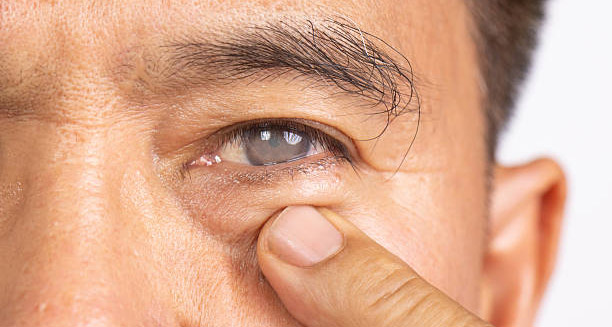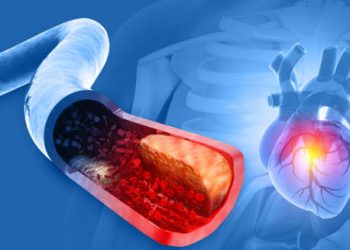The complications of macular degeneration primarily revolve around progressive central vision loss, but the broader consequences can extend well beyond the physical impact on sight. As the condition worsens, it can deeply affect a person’s ability to live independently, do daily tasks, and keep a good quality of life. These complications are not only physical but also emotional, social, and financial. Therefore, complete care and support become very important for long-term well-being.
Progressive and Irreversible Central Vision Loss
The main and most serious complication of macular degeneration is the slow or sudden loss of central vision. This affects the macula, the part of the retina that lets you see sharp, detailed, and colorful images. Usually, side (peripheral) vision stays normal, but these problems often happen:
- Blurry or warped vision in the center of your view
- A dark spot (scotoma) in the middle that makes reading, recognizing faces, or driving hard or impossible
- Lower ability to see colors and contrasts
- Trouble with detailed tasks like sewing, using a computer, or reading small print
Dry AMD causes vision to worsen slowly over time. Wet AMD can make vision fall quickly if it doesn’t get treated fast. For both types, vision loss usually cannot be fixed once the macula is badly damaged.
Functional Impairment and Loss of Independence
One major set of complications of macular degeneration is losing function in daily life. As central vision gets worse, patients may:
- Lose the ability to drive, which greatly limits freedom and movement
- Find personal care, like putting on makeup or shaving, hard
- Have trouble reading even with glasses
- Need help with cooking, taking medicines, and handling money
These problems quickly lower a person’s independence, especially in older adults who already face age challenges. Many have to rely more on caregivers or special tools, which can feel frustrating and discouraging.
Increased Risk of Falls and Injuries
Vision helps keep balance and move safely around. Losing central vision raises the chance of:
- Tripping and falling, especially on stairs or uneven ground
- Getting hurt by misjudging distances, like bumping into furniture or spilling hot drinks
- Breaking bones or needing hospital care, especially in older people with weak bones or frailty
These dangers threaten physical health and can also lower confidence. People may stop moving around freely, leading to social withdrawal and loneliness.
Psychological and Emotional Consequences
The complications of macular degeneration go beyond the body. Losing a skill once taken for granted, like reading or recognizing faces, can be very upsetting. Common feelings include:
- Depression, especially in people with sudden or serious vision loss
- Anxiety, due to fear of worsening disease and total blindness
- Frustration and anger from struggling with everyday activities
- Social isolation, as some may avoid social events or hobbies
Taking care of mental health is vital alongside physical care. Support groups, counseling, and training to adapt can help patients feel better.
Social and Economic Impact
Vision loss also causes big social and money problems. Many patients face:
- Losing their job or retiring early, especially if their work needs clear vision
- Higher health costs from regular doctor visits, aids, and medicines
- Trouble getting around, especially where public transport is poor
- Giving up hobbies or community activities
In some areas, patients also struggle to get low-vision services or financial help for treatments. This makes health gaps even worse.
Conversion from Dry to Wet AMD
A key medical complication of macular degeneration is when dry AMD changes into wet AMD. Not all patients face this, but those with medium or advanced dry AMD have a higher risk. This change can cause fast vision loss if not caught and treated right away.
Look out for signs like:
- Sudden blurry vision
- New or worse distortions in straight lines
- A dark or empty area appearing in the central view
Using tools like the Amsler grid and getting regular eye exams helps catch this early.
Limited Treatment Options and Disease Burden
Wet AMD has good treatments such as anti-VEGF injections. However, dry AMD does not have a cure or treatment that restores vision. Patients with severe dry AMD — called geographic atrophy — may reach a point where medicine can no longer help.
This lack of cures means ongoing challenges for:
- Healthcare systems, because patients need life-long care and check-ups
- Caregivers, who may have to give more help over time
- Patients, who must keep adjusting to worse vision and life limits
Quality of Life Considerations
In the end, the complications of macular degeneration add up to a large drop in quality of life. Peripheral vision helps with basic movement and orientation, but central vision lets people do the activities that bring joy and meaning. These include reading, making art, watching TV, and seeing loved ones’ faces.
Helping patients adjust through:
- Vision rehab
- Assistive tech
- Occupational therapy
- Social support
…can greatly reduce these effects. This help gives people the power to keep their dignity and stay involved in daily life.
Summary of Complications of Macular Degeneration
The complications of macular degeneration reach far beyond vision loss. They affect almost every part of a person’s life — from living alone to mental health and social life. Whether dry or wet AMD causes the problem, the impact can be deep and long-lasting. Still, with early diagnosis, proper treatment, and strong support, many people can handle these challenges well and keep a good quality of life despite the disease.


